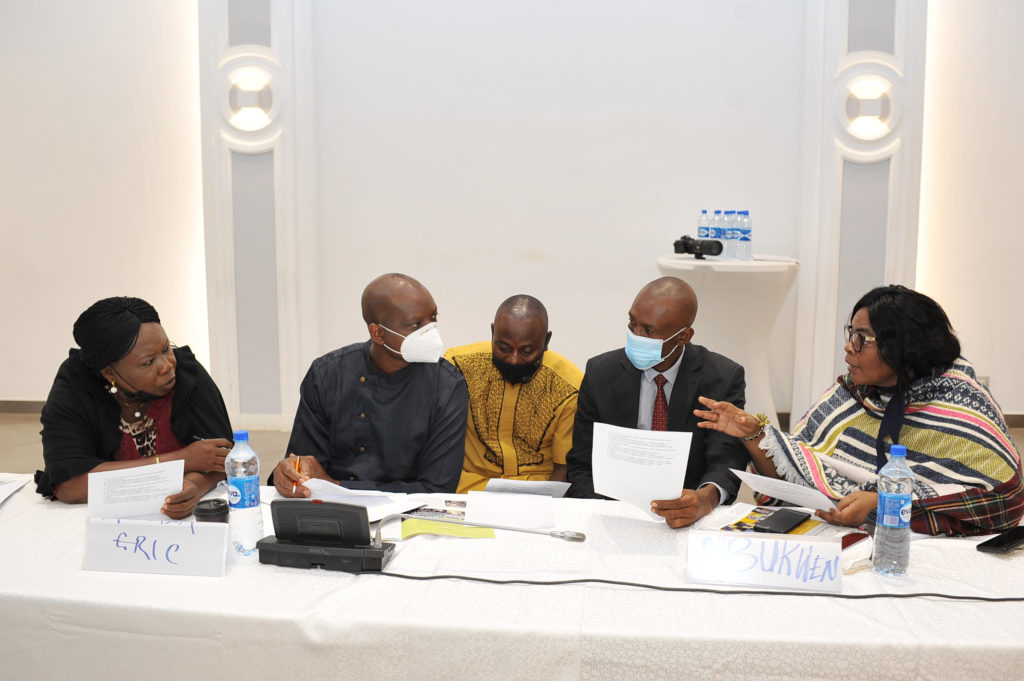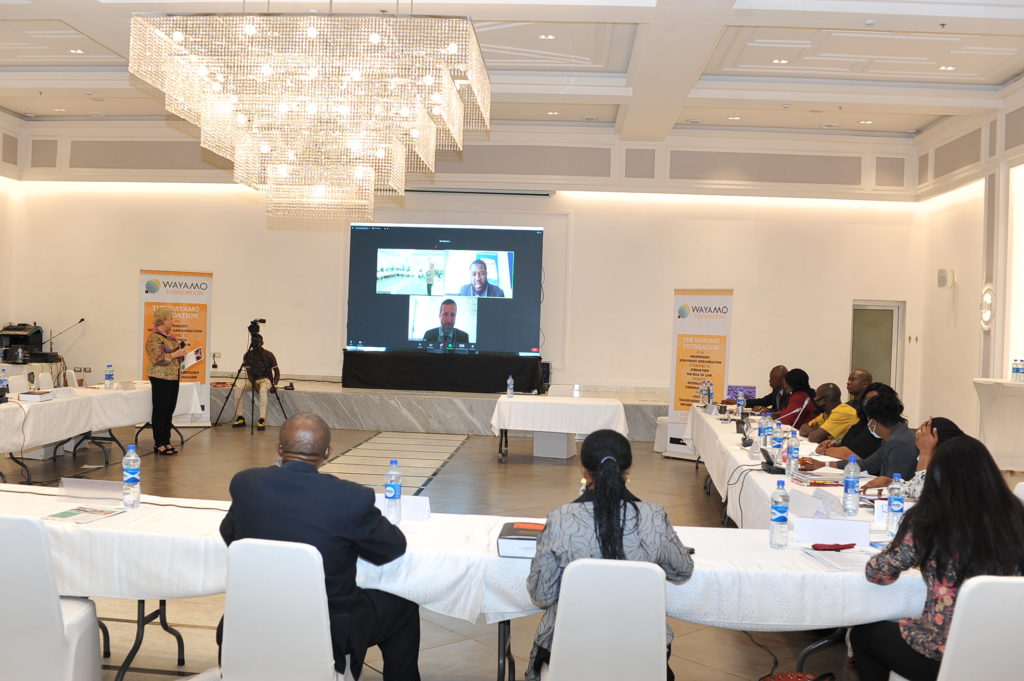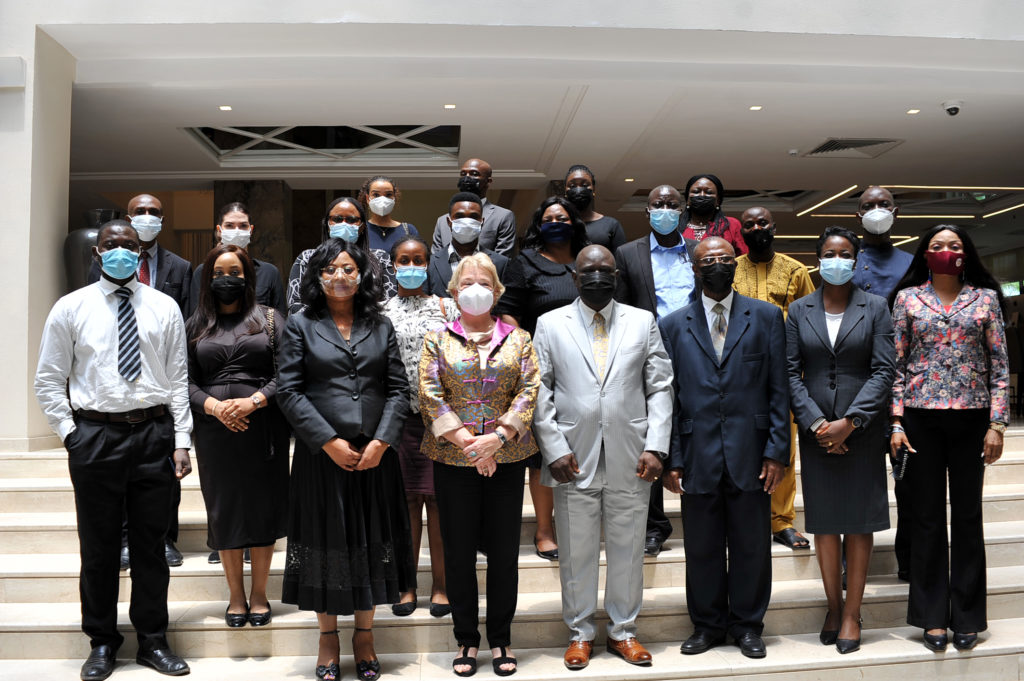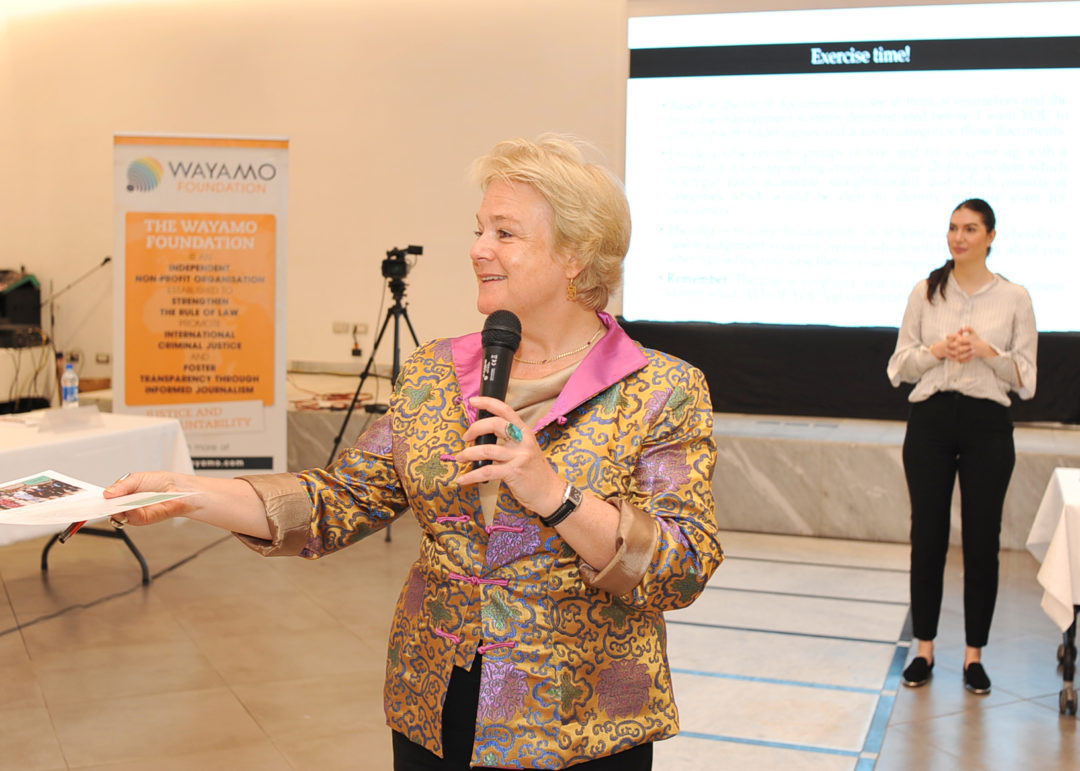Click here for all the pictures of the event.
On 17 May 2021, the Wayamo Foundation held a workshop on the creation of an electronic case-file database and the usage of digital evidence in international criminal investigations within the Complex Casework Group (CCG), a specialised unit coming under the Directorate of Public Prosecutions. The Abuja workshop followed a hybrid model, with CCG members attending in person, and the majority of the experts -both international and Nigerian- joining the event via Zoom.
Together, the Wayamo Foundation and the CCG are creating an electronic case-file database to serve as a repository for terrorism files and their corresponding judgements. This database will also serve to build more complex cases which may address international crimes that fall under the jurisdiction of the International Criminal Court (ICC).
The event was officially opened by Wayamo Director, Bettina Ambach, and by Deputy Director of Prosecutions and Head of the CCG, Chioma Onuegbu, who spoke on behalf of both the Minister of Justice and Attorney-General of the Federation, and the Director of Public Prosecutions of the Federation. Bettina Ambach used the opportunity to unveil and donate the evidence-management software package (Intella) and a new computer to enable the CCG to make the most of its new Intella software.

Group discussions amongst prosecutors of the Complex Casework Group.
Akingbolahan Adeniran, Attorney-General and Commissioner for Justice of Ogun State, started the day with an in-person presentation on the challenges and priorities of creating the CCG’s electronic database. His presentation was practically oriented, and characterised by group exercises and an open flow of dialogue throughout. He was followed by Rebeka Juhosová, legal researcher and data-management expert, who was physically present, and Kris Kotarski, Digital Programmes Manager at the Wayamo Foundation, who joined the proceedings via Zoom. Together, they provided introductory sessions on case-file metadata analysis, case-filing systems and the Intella software. Next up was Arinze Emeka, certified digital forensic attorney and director of the Digital Evidence & Cyber Forensic Institute, who was attending in person and took the participants through ‘electronic documents and the criminal process under the Nigerian Evidence Act 2011’.
In the afternoon, Wayamo lined up a number of Zoom sessions. All the way from The Hague, Claus Molitor, Situation Analyst, Office of the Prosecutor, ICC, and Dahirou Sant-Anna, Cooperation Adviser, Office of the Prosecutor, ICC, gave an overview of the current state of affairs between Nigeria and the ICC. Moving on to the usage of digital evidence in international criminal investigations, Wendy Betts, Director of Eyewitness to Atrocities, devoted the early hours of her day to speak to participants about photo’ and video footage contributing to justice. Similarly, Lindsay Freeman, Law and Policy Director, Technology and Human Rights Program, UC Berkeley Human Rights Center, rose early to discuss new approaches to digital open-source investigations.

ICC Zoom session with Claus Molitor and Dahirou Sant-Anna.
The workshop was wrapped up by Benes Aldana, President and CEO of the National Judicial College in Nevada, who delivered a short TED talk on ‘Not strong men, strong institutions: why Nigeria’s future depends on the rule of law’.
The comments in the evaluations provided valuable insight. The workshop was received very positively, being alternately described as ‘educative’, ‘insightful’, ‘interesting’, ‘eye-opening’, ‘interactive’, ‘challenging’, and ‘forward-thinking’. One participant said that “the training helped us to see some of the gaps that are still in our system and also helped to develop practical solutions and a way forward.” Along similar lines, another participant wrote, “I can now do on my own a lot of the things I learnt today. The moment our software is operational, I will not hesitate to start using it.” Most participants agreed that the time to embrace electronic case-filing and using digital evidence was ‘now’, and that the CCG should ‘set the pace’ in this endeavour.
In terms of how to improve future workshops, three proposals featured most prominently. It was suggested: firstly, that training be given somewhere other than Abuja, since this would help motivate attendees and ensure higher levels of concentration and commitment; secondly, that the number of days and time allotted to training be increased, to ensure a proper understanding of the content; and lastly, that the technique of witness cross-examination be covered at future workshops. Other proposals included the organisation of joint prosecutor–investigator workshops, so as to make some of the content relating to evidence collection and usage more useful and relevant.

Electronic case-file database training for the Complex Casework Group.


